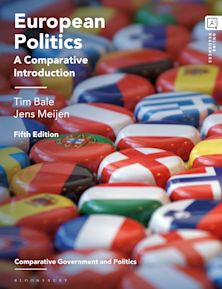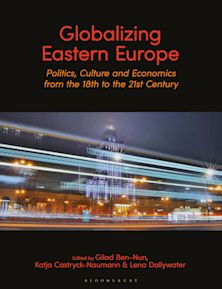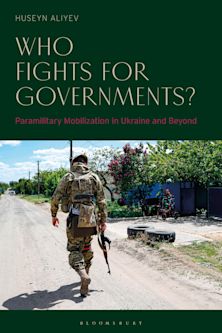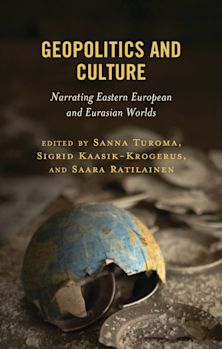- Home
- ACADEMIC
- Politics & International Relations
- European Politics
- Spain and Its Achilles' Heels
Spain and Its Achilles' Heels
The Strong Foundations of a Country’s Weaknesses
Spain and Its Achilles' Heels
The Strong Foundations of a Country’s Weaknesses
You must sign in to add this item to your wishlist. Please sign in or create an account
Description
Why was Franco exhumed from the Valley of the Fallen in late 2019? How is it that he was there in the first place? Why did Catalonia erupt suddenly in October 2017? Why don’t you hear so much about the Basque Country anymore? How did Podemos gather momentum so quickly in 2014-15, and why did half of that support vanish five years later? Isn’t it counterintuitive that a Catholic-majority country also has the most LGBT-friendly society in the world?
Understanding the most significant events in recent Spanish politics requires spelling out the unspoken but enduring foundations of the country’s deepest fears and weaknesses, its Achilles' heels. In Greek mythology, an Achilles' heel is a vulnerability that can lead to downfall despite the apparent general strength of the full body. Casla uses this term to define the underlying factors that, while by no means unique, are characteristic of a particular society, delimit what is possible and shape the political debate. They are the primary political frailties without which a country’s politics cannot be properly comprehended.
Table of Contents
2. Achilles' Heels: The Strong Foundations of a Country's Weaknesses
3. The Territory and the People: How Many Nations?
4. Dealing with the Past: Franco's Legacy
5. Who Weaves the Social Safety Net?
6. “It's the Church We Have Lit Upon, Sancho”: Catholicism and Conservative Politics
7. Vulnerabilities Need not be Weaknesses
Timeline
Bibliography
Index
Product details
| Published | Nov 11 2021 |
|---|---|
| Format | Ebook (PDF) |
| Edition | 1st |
| Extent | 1 |
| ISBN | 9798881859947 |
| Imprint | Rowman & Littlefield Publishers |
| Illustrations | 13 b/w photos; |
| Publisher | Bloomsbury Publishing |
About the contributors
Reviews
-
Spain and Its Achilles’ Heels is a well-argued, entertaining stimulus to thought and debate.
Bulletin of Spanish Studies
-
Koldo Casla has written a sophisticated and well-written account of four historical vulnerabilities. This is a must-read for scholars and students interested in contemporary Spain.
Diego Muro, Senior Lecturer in International Relations, University of St Andrews, Co-editor of the Oxford Handbook of Spanish Politics
-
After years of original thinking and careful examination of Spain, Koldo Casla offers an up-to-date, comprehensive and critical view of Spanish politics. Written in a reader-friendly manner, this book will be a reference not only for those interested in Spain, but also for those who care about the traces of the past in contemporary politics in new democracies. I cannot think of a better point of entry to understand contemporary Spanish politics.
Ignacio Lago, Professor of Political Science at Universitat Pompeu Fabra, Co-editor of the Oxford Handbook of Spanish Politics
-
In order to understand Spain properly, one must read this book. Its rigorous analysis and the abundant and detailed information about Spain’s recent history are key to make sense of the problems, the good attributes and the deficiencies of the country. What’s truly typical about Spain are, in fact, the four vulnerabilities covered in this book.
Iñigo Lamarca, former High Commissioner for Human Rights in the Basque Country (2004-2014)
-
In Spain and its Achilles' Heels: The Strong Foundations of a Country’s Weaknesses, Koldo Casla offers in a very challenging way the main flaws of modern democratic Spain. His thoughtful arguments about the role played by historical legacies help to illuminate the challenges of the present.
Pablo Simón, Assistant Professor at Universidad Carlos III, Madrid
-
Combining personal anecdotes with deeper analysis, this book provides an excellent insight into what makes Spanish politics tick. Written in an engaging and highly readable style, it will appeal to a broad audience interested in understanding Spain today.
Caroline Gray, Lecturer in Politics and International Relations, Aston University

ONLINE RESOURCES
Bloomsbury Collections
This book is available on Bloomsbury Collections where your library has access.


































